Ex-Political Prisoner Denies News About Her Death
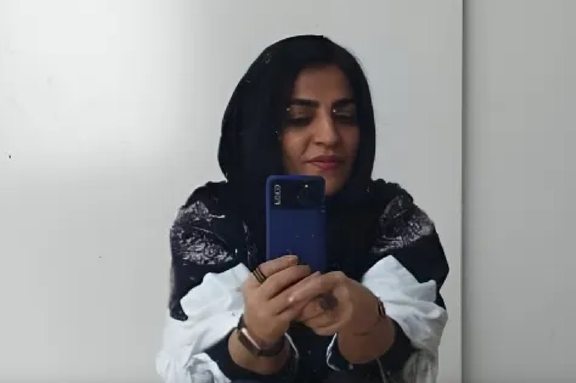
CORRECTION - Mahnaz Khazaei, a former political prisoner, denied her death in a video message released on Monday Iran time, after media had reported her passing on Saturday.

CORRECTION - Mahnaz Khazaei, a former political prisoner, denied her death in a video message released on Monday Iran time, after media had reported her passing on Saturday.
Mahnaz Khazaei, a former political prisoner, denied her death in a video message released on Monday, the 12th of Farvardin.
IranWire had first reported on Saturday, that Khazaei had passed away due to a heart attack after being released from prison.
IranWire wrote that according to information received from Khazaei's relatives, intelligence agents took all of Khazaei's medical records and her family's mobile phones when they went to the hospital.
In her message to refute her death, Khazaei said that her mobile phone had been stolen in the past few days, and she did not know who had spread this news.
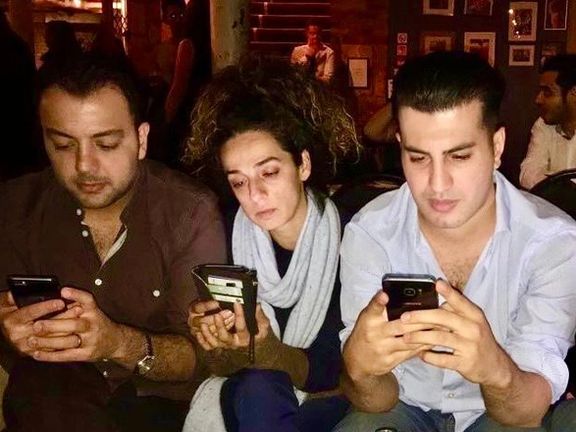
Last Friday, my friend and journalist for Iran International TV, Pouria Zeraati, was brutally stabbed in London as he was leaving for work.
The Iranian regime denies any involvement, but I, along with millions of Iranians, hold the clerical regime squarely responsible. Ali Khamenei and his Revolutionary Guards bear full responsibility for this crime.
This attack on Zeraati was a sinister message from the Islamic Republic: If you are a dissident, then you are not safe, no matter how far from Iran's borders you may be. It was a blatant attempt to silence those who dare to expose the regime's atrocities, corruption, economic incompetence, and nefarious activities abroad.
The Islamic Republic's strategy is clear: to terrorize activists and journalists, eroding their sense of security and forcing them into isolation. But such terrorism goes beyond physical harm; it aims to sow fear and disrupt their activism, compelling survivors to retreat from public life. This will lead to self censorship.
Another tactic is to sow fear among organizations keen to learn more from Iranian dissidents. I speak from experience, having been the target of an assassination plot by the Islamic Republic. I have remained resolute in continuing my fight but, I've noticed a chilling effect: some NGOs are hesitant to engage with me, fearing for the safety of their events.
In Europe, despite the greater levels of Islamic Republic terrorism, it is difficult for law enforcement agencies to take the threats seriously. Zeraati, for example, had informed the London Metropolitan Police of the threats against him, including some that contained photos of his home. There was no mistaking the message: the harassers knew where he lived.
It is shocking that the Met didn't take the warnings seriously, especially after last November's revelations by ITV news that two other Iran International journalists, Sima Sabet and Fardad Farahzad were targeted for assassination by the Islamic Revolutionary Guard (IRGC). Sabet and Farahzad learned of plots against them not from UK's law enforcement officials but from the ITV broadcast. It is as if the Met has buried its head in the sand, hoping that Islamic Republic terrorism will go away. Their negligence is alarming and contrasts starkly with the protection I receive in the US, where threats are taken with utmost seriousness.
The attack in London must serve as a wake-up call to the international community. The Islamic Republic is not bluffing when it threatens dissidents abroad. It is concerning that Islamic Republic can send agents to the West and recruit criminals to do its dirty deeds with relative ease.
US Secretary of State Antony Blinken and White House National Security Adviser Jake Sullivan arranged urgent meetings with me right after the kidnapping plot against me was discovered. UK top officials should urgently meet with Pouria and other targets to send a clear signal to the Islamic Republic’s officials that such aggression is not tolerated.
Of course, the Islamic Republic has denied any involvement in terror attacks beyond its borders. That denial should be taken with a huge grain of salt. The regime has often boasted of its capabilities to capture and eliminate dissidents, gloating over the kidnapping of journalist Ruhollah Zam, who was executed in December 2020, and the abduction of Iranian-German dual national Jamshid Sharmahd from Dubai. Another dissident, Habib Chaab was lured to Turkey from Sweden and then abducted to Tehran where he was executed in May 2023. According to the Boroumand Foundation, a human rights organization, more than 500 dissidents have been killed abroad.
For now, the identity of Pouria's attackers remains unknown, but it's crucial to recognize that the Islamic Republic has a history of employing international criminal gangs for such operations. In my case, they hired hitmen from Azerbaijan. In another famous case, Islamic Republic agents recruited a Mexican drug gang in a failed plot in 2011 to kill the Saudi Arabian ambassador Adel Al-Jubeir.
I am convinced that these terrorist operations are orchestrated by organs of the shadow government that report directly to Ali Khamenei and are overseen by the IRGC.
This brazen defiance challenges Western governments on their own turf. Eliminating troublesome journalists, human rights activists or journalists is all part of the same playbook employed by autocrats in Russia, China, and even Venezuela. Totalitarian regimes are employing the same tactics to silence dissent beyond their borders. It's sad to say but the UK government and its law enforcement agencies have not been up to the task of stopping Russian or Islamic Republic agents from operating freely on the streets of London or in fact any city in the UK.
Transnational repression threatens the very foundations of democracy and free speech. We need to be resolute and confront such terrorism. The first step involves capturing the perpetrators of the heinous attack on Pouria Zeraati. But we should not limit ourselves to taking actions against mere henchmen. We should make the paymasters of terror to pay for their crimes.
Opinions expressed by the author are not necessarily the views of Iran International
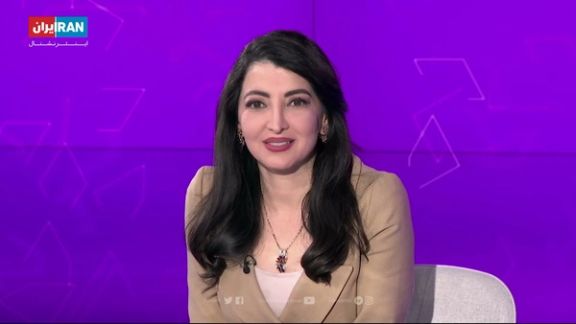
Sima Sabet, a former television anchor at Iran International, revealed that the Metropolitan Police's Counter-Terrorism Unit has urged her to leave her residence.
This follows a knife attack on Pouria Zeraati, another host at the network, outside his home in Wimbledon, south London.
Zeraati, a prominent journalist, survived the assault and is reportedly in stable condition. However, the incident underscores threats faced by Iran International, known for its independent coverage of Iran. The London-based broadcaster has been a target of Tehran's hostility, and the Friday attack on Zeraati could be a troubling escalation.
Sabet took to social media to express her concerns, revealing previous attempts on her life and her former colleague Fardad Farahzad.
“However, I must emphatically mention that the British government has not taken sufficient, meaningful, decisive, and effective political action against the terrorism of the Iranian government,” she added.
She emphasized the need for a safe environment for journalists and opponents of the Islamic Republic in Britain and other Western countries.
“As a journalist and a British citizen, I cannot hide my criticism and concern over this political and diplomatic negligence. Many of my journalist friends agree with this assessment. London is our home. Britain must be a safe place for journalists across all media, and unsafe for extremists and terrorists receiving orders from Tehran. Our voice will not be silenced by threat and terrorism. Journalism is not a crime; state terrorism is. Stop it.”
As investigations into the attack on Zeraati continue, concerns linger over the broader implications for journalists critical of authoritarian regimes.
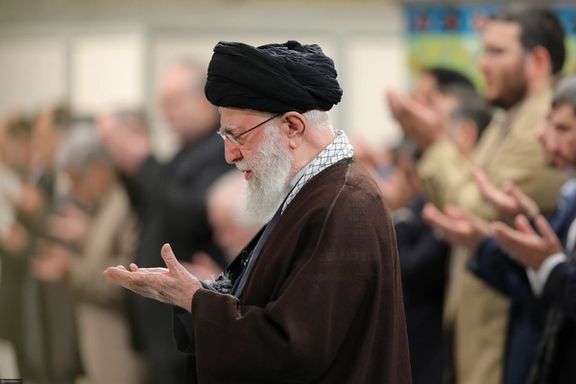
A seasoned politician in Iran has openly criticized the regime’s orchestrated elections, suggesting that key decisions about elections are made by the office of the Supreme Leader.
Hossein Marashi, the secretary general of centrist Executives of Construction Party remarked: "If the decision was already made to have Ebrahim Raisi and Mohammad Bagher Ghalibaf as the heads of two of the three powers of the government, I wonder why they did not assign the right roles; Ghalibaf as the President and Raisi as the Speaker of the parliament?"
Raisi is seen by most pundits and even regime politicians as a bad manager, who only makes promises, and is not able to run an effective and efficient administration. Ghalibaf, on the other hand, was mayor of Tehran for 12 years and has more managerial experience.
Marashi also argued that "Ghalibaf can manage the parliament better than hardliners such as newly elected MPs Mahmoud Nabavian and Hamid Rasaei,” but the problem is that the hardliners will not allow him to play a part in decision-making at the Majles. He noted Ghalibaf’s ongoing disagreements with the President over various bills.
When asked if he was surprised that seasoned politicians like Mohammad Javad Bahonar did not win enough votes to enter the parliament while low-key politicians such as Nabavian and Rasaei did, he said: "No, I was not surprised. Those gentlemen won the votes in the absence of the people in the election." He lamented that “It is a shame this election has deprived the nation of the services of good conservative politicians like Bahonar.”
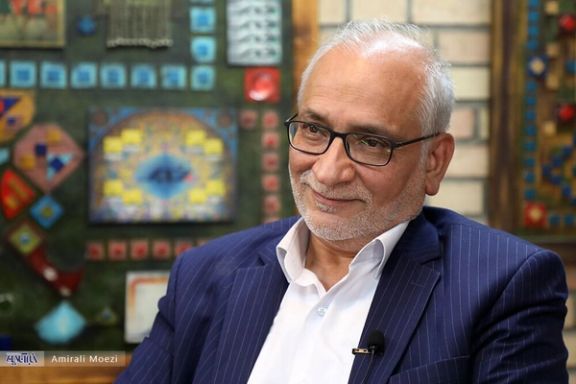
The Guardian Council, which has the right to vet candidates, disqualified hundreds of individuals in the run-up to the March 1 elections, paving the way for hardliners to win a sizeable majority in the parliament (Majles). Nearly 60 percent of eligible voters stayed away from the polls, which further helped the ultraconservatives.
Marashi revealed that he had once conveyed to President Raisi that pro-reform politicians have never been his political rivals, emphasizing that the real challenge lies in addressing the people's disenchantment with elections.
Meanwhile, Jalal Rashidi Koochi, an current lawmaker who was not allowed to run for re-election told reporters with a high degree of certainty that "Ghalibaf is not going to be the speaker of the next parliament."
He attributed Ghalibaf's downfall to his alliance with ultraconservative Paydari Party members, warning of increased regional and international tensions with radicals in the Majles and a potential Trump victory in the US elections.
Gholamreza Tajgardoon, a winner in the recent election despite previous disqualification, asserted that the new parliament won't have a figurehead.
Tajgardoon predicted that the new Iranian year, which started in on March 20, will be a difficult year for everyone including President Raisi. However, he added that even a reshuffling of his cabinet is not going to help Raisi.
He added that one of the difficulties of the government is that it gets a partial three-month budget at the beginning the year. Tajgardoon said: "Money is the government's biggest problem. It was not difficult to run the country if we had the money."
There are several politicians in the newly elected parliament who wish to run for president in the 2025 elections. They will certainly do their best to further weaken Raisi's position.
Looking ahead, Tajgardoon noted the ambitions of several politicians in the next Majles to run for president in 2025, aiming to weaken Raisi's standing. However, he cautioned against excessive infighting damaging the Majles' reputation, advocating instead for addressing the needs of the majority of voters who abstained from the recent elections.
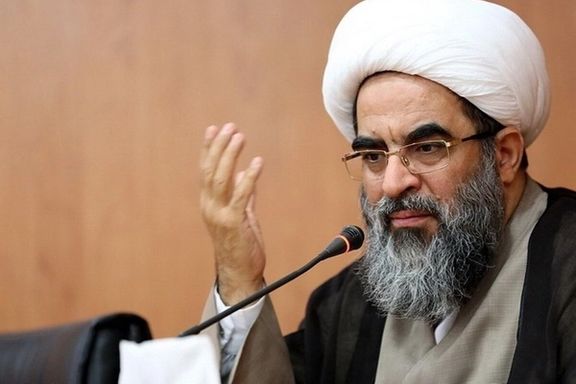
An Iranian cleric says apartment construction is condemned in religious texts, asserting Islam's opposition to people living in such units compared with private houses.
Mohammad Javad Fazel Lankrani, a member of the Society of Seminary Teachers of Qom, set forth numerous drawbacks of apartment living, suggesting that it goes against Islamic principles.
“Perhaps the damage caused by apartment living is several times that of living in houses,” he added.
Nevertheless, he omitted to address the misguided policies implemented by the clerical regime, which have contributed to widespread poverty compelling families to reside in small apartments due to their inability to afford larger homes.
Lankrani's remarks coincide with growing concerns in Iran's real estate market. Experts anticipate a significant surge in housing prices and rents fueled by factors such as the further depreciation of Iran's rial.
As the national currency continues to lose value and inflation drives rents higher, sellers are hesitant to lower prices, exacerbating the pressure on millions of Iranians. Many local companies in the housing sector are already grappling with rising costs, inflation, and reduced demand.
The Iranian rial has depreciated by more than 20 percent since January, prompting individuals to seek refuge in foreign currencies to safeguard their investments.
Recent figures released by the Statistics Center of Iran indicated an annual inflation rate of nearly 40 percent in the housing market over the past year. The cost of apartments in major cities like Tehran now exceeds 700 million rials (over $1150) per square meter, far surpassing the average monthly earnings of civil servants and ordinary workers.
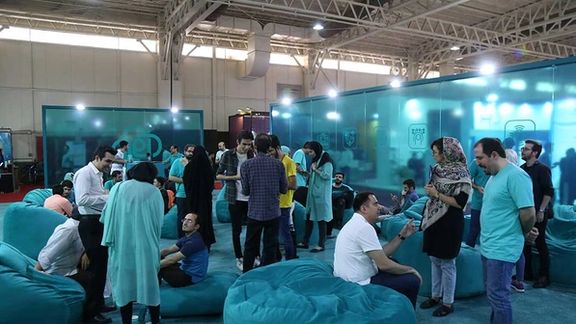
The German Ministry of Foreign Affairs spokesperson has told Iran International that the case of removing the Iranian firm ArvanCloud from EU's sanctions list in under review.
The firm was sanctioned in 2022 amid anit-government protests for its role in Iran's Internet censorship.
"The case is currently under review by the European Court of Justice. We are unable to confirm any decision by the EU to lift sanctions against ArvanCloud," stated the foreign ministry.
Iran International reported earlier this week that the European Union plans to delist ArvanCloud. However, according to a source close to European diplomats, the decision awaits confirmation.
ArvanCloud has contested its sanctions by filing a complaint with the European Court of Justice and exerting pressure on European governments through political channels. Concurrently, the company announced the termination of its contract with the Ministry of Communications and Information Technology of the Islamic Republic of Iran.
Insiders revealed that ArvanCloud's international supporters claim that the company is provided millions of Iranian citizens with access to a free internet during the Woman, Life Freedom protests in 2022-2023. This purported contribution may have influenced the EU's decision to reconsider sanctions against ArvanCloud.
Iran's history of internet censorship, which extends to social media platforms and traditional media outlets, underscores the significance of ArvanCloud's role.
Since 2002, Iran has systematically blocked tens of thousands of websites. With the emergence of social media, it extended its censorship to platforms like Facebook, Twitter (X), and YouTube. Additionally, traditional media undergoes extensive censorship, encompassing books and films, with restrictions based on Islamic beliefs and political content.